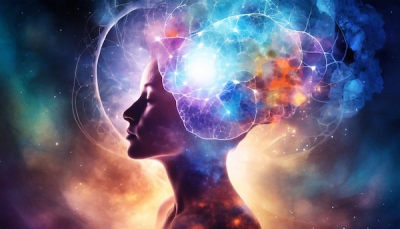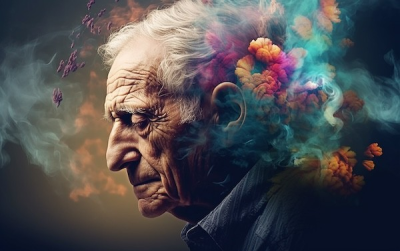What is Schizophrenia and can CBD help?
Author: Pavel Cermak
Schizophrenia is a complex mental disorder affecting millions of people worldwide. Although traditional treatments, including antipsychotic medications and therapy, remain the foundation of treatment, researchers and patients alike are increasingly interested in new approaches. One such potential approach is the use of cannabidiol, known as CBD, which is gaining attention for its potential therapeutic effects, including a possible role in treating schizophrenia. In this article, we will explore current research and evidence on the effects of CBD on schizophrenia symptoms and its potential as a complementary treatment option for those suffering from this challenging disorder.
What is Schizophrenia?
Schizophrenia is a severe, chronic mental disorder that affects how a person thinks, feels, and perceives reality. People with schizophrenia may struggle to distinguish between real and imagined events, experience disordered thinking, and suffer from hallucinations or delusions.
This disorder typically begins at a young age, often in adolescence or early adulthood, and can significantly impact an individual's ability to function in daily life.
Key symptoms of Schizophrenia include:
- Hallucinations: Seeing, hearing, smelling, tasting, or feeling things that aren't actually there.
- Delusions: Strong beliefs in something untrue, such as feeling that someone is watching you or thinking you have extraordinary abilities.
- Disordered thinking: Disruptions in thought processes, disorganized thinking, and difficulty concentrating.
- Negative symptoms: A loss of interest or pleasure, lack of emotional response, low motivation, and reduced social interaction.
- Movement disorders: Can manifest as uncoordinated movements or extreme rigidity of the body.
- Problems with daily functioning.
How is Schizophrenia treated?
Schizophrenia treatment typically involves a combination of medications and psychotherapy aimed at reducing symptoms and improving the patient's quality of life.
Key aspects of schizophrenia treatment include:
- Antipsychotics: These medications are often the first line of treatment for schizophrenia. They help reduce positive symptoms such as hallucinations and delusions. Various types of antipsychotics exist, including traditional (typical) and atypical antipsychotics. The choice depends on the patient’s individual response and tolerance to side effects.
- Psychotherapy: Cognitive-behavioral therapy (CBT), individual therapy, family therapy, and social skills training are often part of the treatment plan. These therapies help patients understand their symptoms, cope with stress, and improve communication with others.
- Support and rehabilitation: Support programs and rehabilitation can help patients with schizophrenia develop the skills needed for independent living.
- Family and close support: Family support and education are crucial in the treatment of schizophrenia. Close ones can be key partners in ensuring a stable environment for treatment.
- Regular monitoring and medical care: Schizophrenia patients require regular monitoring and mental health check-ups. This includes frequent visits to the doctor, adherence to the treatment plan, and adjustments to treatment as needed.
Each case of schizophrenia is unique, and treatment plans must be individually tailored to the needs and responses of each patient. Although the treatment of schizophrenia can be a long-term process, with appropriate care and support, patients can lead fulfilling and quality lives.
Can CBD help treat Schizophrenia?
The question of whether CBD (cannabidiol) is effective in treating schizophrenia is still under research and debate among experts. Several studies suggest that CBD might have potential as a complementary treatment for some schizophrenia symptoms, but conclusive findings have not yet been reached. However, trying CBD as part of treatment generally poses minimal risk.
Some studies indicate that CBD may have antipsychotic properties, potentially helping reduce certain symptoms like hallucinations and delusions, with fewer side effects compared to traditional antipsychotics. Nonetheless, it’s not yet fully understood how CBD impacts brain chemistry or how it affects schizophrenia symptoms.
It’s important to remember that treatment effects can vary from one individual to another. What works for one patient may not work for another.
How exactly does CBD affect Schizophrenia?
- Interaction with the endocannabinoid system (ECS): The ECS is a complex system in the body that regulates various functions, including mood, memory, behavior, and pain perception. CBD interacts with ECS receptors, particularly CB1 and CB2. Changes in the ECS may influence neurotransmitters and brain activity related to schizophrenia symptoms.
- Antipsychotic effects: Some studies suggest CBD has antipsychotic properties that may help reduce schizophrenia symptoms like hallucinations and delusions. This antipsychotic activity is thought to be related to CBD's interaction with neurotransmitters and brain pathways linked to psychosis.
- Modulation of neurotransmitters: CBD may affect levels of brain neurotransmitters like dopamine, glutamate, and serotonin, which are associated with schizophrenia. Some studies suggest CBD could help regulate these neurotransmitters and normalize their dysfunction in schizophrenia patients.
- Anti-inflammatory effects: CBD’s anti-inflammatory properties might help reduce neuroinflammation and protect brain cells from damage.
- Support for neuroplasticity: CBD may promote neuroplasticity, the brain’s ability to adapt and reorganize based on new information and experiences. In schizophrenia patients, neuroplasticity may be impaired, so supporting this process could have therapeutic benefits.
It’s important to note that the exact mechanisms of CBD's effects on schizophrenia are still being researched, and no definitive conclusions have been reached.
How to use CBD for Schizophrenia?
Starting with 10% CBD oil, or CBD capsules, is recommended, and combining it with CBD oil in fish oil can also be beneficial.
Begin the day with a tablespoon of CBD oil in fish oil (after breakfast). At lunch and in the evening, CBD oil 10% (or capsules) can be taken. It’s suggested to start with 3 drops (for oil) or 1 capsule, gradually increasing the dose over several days until the desired effect is achieved.
Over time, you can try switching to CBD + CBG capsules and evaluate which had better effects on you.
Adding hemp tea during the day can also harmonize natural processes in the body.
Combination of medications and CBD
When combining schizophrenia medications and CBD, it’s important to note that CBD may interact with these medications, impacting their effectiveness or side effects. Therefore, ensure a gap of at least 2 hours between taking medications and CBD supplements.
Other recommended supplements for Schizophrenia:
- Omega-3 fatty acids: Studies suggest that omega-3 fatty acids, particularly DHA and EPA, may benefit brain health and mood. Foods rich in omega-3 include fatty fish (salmon, mackerel, herring), flaxseeds, chia seeds, and hemp seeds.
- Vitamin D: Low levels of vitamin D have been linked to an increased risk of developing mental disorders, including schizophrenia. Regular exposure to sunlight and consumption of vitamin D-rich foods, such as fatty fish, eggs, or dairy products, is recommended. Supplements may also be advised.
- Antioxidants: Antioxidants like vitamins C, E, and beta-carotene may protect brain cells from free radical damage. Foods rich in antioxidants include citrus fruits, broccoli, spinach, avocado, blueberries, and raspberries.
- Vitamin B complex: B vitamins, especially B6, B9 (folic acid), and B12, are important for brain and nervous system function. Foods rich in B vitamins include whole grains, nuts, seeds, legumes, leafy greens, and supplements containing B-complex vitamins.




